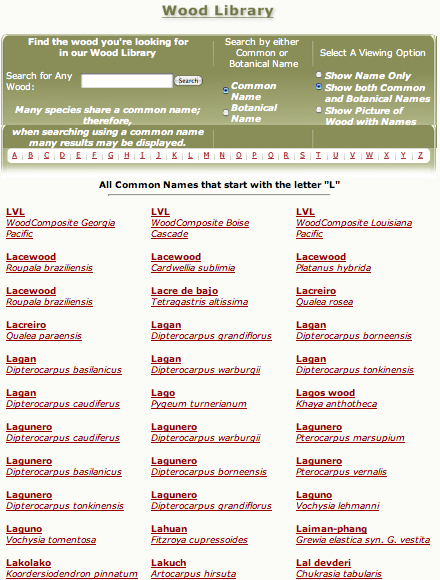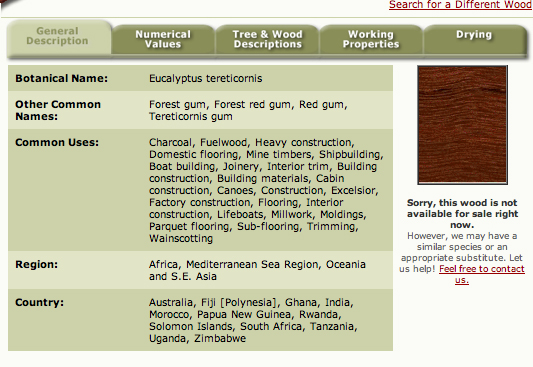 Do you ever run across a wood species at your lumber supplier that’s brand new, but you don’t know where to learn more about it? That often happens for me when I’m experimenting with new turning woods. The yard help or store clerks don’t always know, either.
Do you ever run across a wood species at your lumber supplier that’s brand new, but you don’t know where to learn more about it? That often happens for me when I’m experimenting with new turning woods. The yard help or store clerks don’t always know, either.
Before I dive into using a new type of wood, I think it’s wise to find out what its working characteristics are and what, if any, health implications there may be to cutting, sanding or even handling it. You’ll definitely want these kinds of details to prepare for gluing or finishing.
Well, thanks to the internet, databases abound for just about everything these days — even unique types of wood. Recently I reported on Woodworkers Source for our “Industry Interview” in issue 233 of our eZine. If you didn’t happen to read that article, here’s a link to it:
The company has an extensive website (woodworkerssource.com), and my favorite feature is the Wood Library. I haven’t taken the time to count the number of wood species listed on it, but there are thousands of entries, listed alphabetically. Click on the tab at the top of the home page to open it up. No charge or password required.
 You can search the database by entering a wood’s common or botanical name. Or, click on one of the pop-down letter menus to find the wood you’re looking for. Select a listing, and you’ll get a picture of what the species looks like, along with tabs for its general description, numerical values, other relevant tree and wood descriptions, working properties and drying characteristics.
You can search the database by entering a wood’s common or botanical name. Or, click on one of the pop-down letter menus to find the wood you’re looking for. Select a listing, and you’ll get a picture of what the species looks like, along with tabs for its general description, numerical values, other relevant tree and wood descriptions, working properties and drying characteristics.
Did you know, for instance, that lignumvitae is also called palo santo? Me either. If you like the color of osage orange, don’t use an oil-based finish on it. According to the Wood Library, that will accelerate the color change.
With a helpful database like this, we can all know the difference between Palach and Pali without a degree in botany first. Very satisfying to the Cliff Claven in all of us — and useful, to boot. Check it out.
Catch you in the shop,
Chris Marshall





